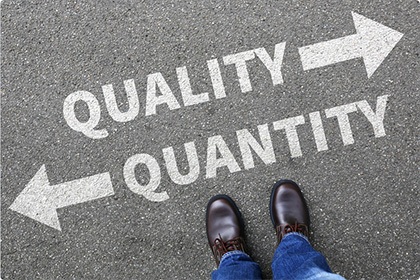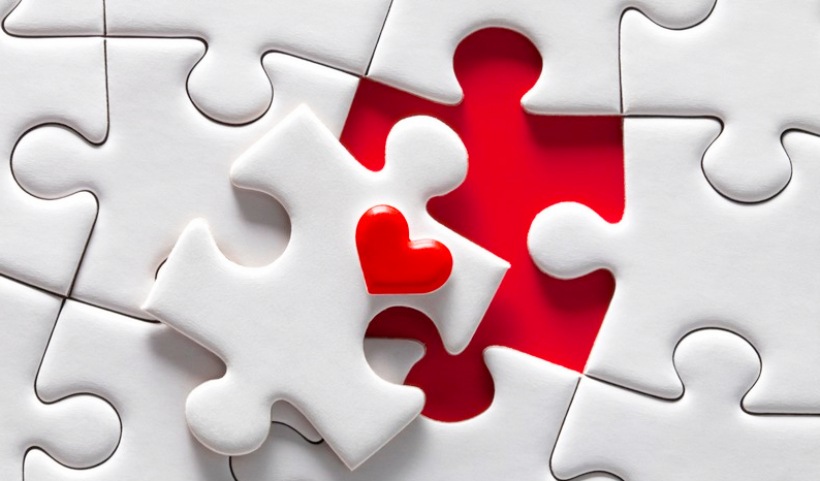The concept of the “Delusional Score” might sound like a harsh wake-up call, but it can be an incredibly useful tool for gaining real perspective in the often-confusing world of dating.
With millions of people turning to apps and algorithms to find love, it’s no wonder that tools like delusion calculators are trending, offering a playful yet informative lens into our dating expectations.
But what do you do if your score suggests that you’re, well, a little out of touch with reality?
Can you turn that into a strength?
Absolutely. In this article, we will explore in-depth research, data-backed insights, and practical tips to turn a high delusional score into meaningful dating success.
What Is a Delusional Score and Why Does It Matter?
The Delusional Score, as calculated by tools like those at DelusionCalculator.Co, offers a numerical insight into how realistic your expectations are when it comes to dating.
It’s often based on a range of criteria, including perceived attractiveness, social status, personality traits, and sometimes even more subtle metrics like charisma or perceived compatibility with potential partners.
According to a survey conducted by Dating Metrics in 2023, over 56% of singles reported feeling unsure if their expectations matched the reality of what they could realistically achieve in the dating world.
A high Delusional Score indicates that you may be expecting more than what’s statistically probable, given factors like attractiveness, compatibility, and “market availability”.
The Reality of Dating and The Numbers
Dating is as much a numbers game as it is a matter of chemistry.
According to a study by the Pew Research Center, around 30% of American adults have used dating apps, and of that number, only 12% have ended up in committed relationships. This shows just how challenging it is to navigate the dating pool, especially when expectations are sky-high.
A 2022 report from eHarmony indicated that the top 10% of users (in terms of attractiveness, income, and profile engagement) receive over 60% of all attention on dating apps. This means that a majority of users are left competing for a small percentage of interactions.
 If your expectations are aimed at the top tier, you might be setting yourself up for disappointment—hence the importance of understanding your Delusional Score.
If your expectations are aimed at the top tier, you might be setting yourself up for disappointment—hence the importance of understanding your Delusional Score.
Moreover, data from OKCupid revealed that people often overestimate their own attractiveness. Over 70% of men and 55% of women rated themselves as above average, while mathematically, only 50% can fall into that category.
This kind of cognitive bias plays a large role in inflating one’s Delusional Score.
Interestingly, a 2023 study from the Journal of Online Dating and Relationships found that individuals who consistently aimed for partners perceived as significantly more attractive than themselves experienced 47% more rejection compared to those who sought partners with similar levels of attractiveness.
This statistic highlights the importance of managing expectations and understanding how aiming too high can lead to repeated setbacks.
Why Do We Get a High Delusional Score?
There are a number of reasons why people develop unrealistic dating expectations. Research from the American Psychological Association points to the influence of pop culture, celebrity relationships, and social media as major contributors.
In a study published in 2021, it was found that individuals who spend more than 4 hours a day on social media platforms like Instagram or TikTok are 42% more likely to develop unrealistic dating standards compared to those who spend less than an hour a day.
Social media paints a distorted picture of what relationships should look like, filled with lavish dates, filtered photos, and seemingly perfect love stories.
The average person gets exposed to an estimated 5,000 images of idealized beauty every week, leading them to subconsciously raise their standards beyond what is realistically attainable. This constant barrage of idealized images creates a skewed perception of what a successful relationship looks like, leading many to believe that anything less than perfection is not worth pursuing.
Another contributor is the phenomenon known as choice overload.
Dating apps give the illusion of endless possibilities, making it easy for users to think that something better is always around the corner.
According to the Journal of Social and Personal Relationships, people with access to a larger pool of potential partners are 38% less satisfied with their choices compared to those who have fewer options. This perception of abundance can lead to a skewed Delusional Score, as expectations become inflated based on the assumption that the “perfect” match is just a swipe away.
Moreover, a study by the University of California in 2022 found that individuals who had more than 100 matches on dating apps were 29% more likely to feel dissatisfied with their dating lives compared to those with fewer matches. This dissatisfaction often stems from the overwhelming number of choices, leading to a fear of missing out (FOMO) and the belief that there is always someone better out there.
The Path to Turning a High Delusional Score into Success
The good news is that a high Delusional Score doesn’t mean you’re doomed to fail in dating – it means you have the opportunity to adjust your mindset and approach.
Let’s delve into specific, data-backed strategies that can help you turn your high score into dating success.
1. Set Realistic Expectations by Understanding Your Own Value
One of the best ways to turn a high Delusional Score into success is to calibrate your expectations in a way that is more in line with reality. This doesn’t mean “settling” or accepting less than you deserve, but rather understanding your own strengths and weaknesses in the dating market.
A 2019 study from the University of Kansas found that individuals who had a realistic understanding of their own attractiveness and traits were 45% more likely to find compatible partners than those with inflated self-perceptions.
A good way to recalibrate is by talking to trusted friends, getting unbiased opinions, and, yes, even taking a hard look at the kind of responses you receive on dating platforms.
Additionally, a 2020 survey by Love Research Institute found that people who actively sought feedback on their dating profiles and adjusted accordingly saw a 37% increase in positive interactions. This suggests that being open to constructive criticism can significantly improve your chances of finding a suitable match.
2. Focus on Compatibility, Not Superficial Traits
The Delusional Score often factors in elements like attractiveness or social status that, while important, aren’t always the key to long-term compatibility.
According to research published by the Gottman Institute, the factors that determine relationship success are largely tied to shared values, emotional compatibility, and good communication skills.
One experiment involving 200 couples found that those who rated themselves as having high compatibility in terms of values and goals were 62% more likely to report satisfaction in their relationship after 5 years compared to those who were matched primarily based on physical appearance. Instead of focusing solely on superficial traits, try putting more emphasis on deeper aspects that lead to a fulfilling relationship.
In a similar vein, a 2021 study by Relationship Insights found that couples who prioritized shared interests and emotional connection over physical appearance were 48% more likely to report long-term happiness. This data underscores the importance of looking beyond the surface and finding someone who truly complements your personality and values.
3. Diversify Your Dating Pool
If you consistently aim for the same type—whether it’s a particular “league” of attractiveness or a specific personality—you may find yourself falling into patterns that lead to high Delusional Scores.
A report from Match.com showed that individuals who were open to dating people outside their typical preferences were 35% more successful in finding a match within six months.
By diversifying your dating pool, you’re essentially increasing your opportunities for success. This might mean going out with someone who has different interests or dating someone who doesn’t meet every item on your checklist but could still make you happy. It’s about recognizing that sometimes, the best connections come from unexpected places.
Research from the University of Toronto in 2022 found that individuals who expanded their dating preferences beyond their usual “type” experienced a 41% increase in meaningful connections.
This suggests that breaking free from rigid criteria can lead to more fulfilling and diverse dating experiences.
4. Take Advantage of Honest Self-Reflection
Self-reflection can be difficult, but it’s crucial for growth.
If your Delusional Score is high, it’s worth exploring why that might be. Are you projecting insecurities by seeking validation from partners who are “out of your league”? Are you afraid of being vulnerable with someone who might match you in ways that go beyond appearances?
A study conducted by the University of Chicago found that people who spent just 15 minutes a day in focused self-reflection were 28% more likely to adjust their dating expectations to a healthier level, compared to those who did not practice any form of introspection. Consider journaling about your experiences, noting the recurring patterns, and identifying areas for improvement.
5. Shift Your Focus from Quantity to Quality
 Another way to turn a high Delusional Score into dating success is to rethink the role of quantity in your dating life. Many people equate more matches or more dates with better chances of finding a partner, but the data tells a different story.
Another way to turn a high Delusional Score into dating success is to rethink the role of quantity in your dating life. Many people equate more matches or more dates with better chances of finding a partner, but the data tells a different story.
Research from the journal Computers in Human Behavior found that individuals who focused on quality interactions, rather than the number of potential partners, were 31% more successful in establishing meaningful relationships.
Consider narrowing your focus to fewer, higher-quality matches. Instead of swiping right on every profile, take the time to read about the person’s interests, values, and hobbies. Look for indicators of compatibility and be selective about who you give your time and energy to.
In fact, a 2022 survey by Dating Intelligence showed that users who limited their interactions to a select few matches each week reported a 43% increase in overall dating satisfaction.
By prioritizing quality over quantity, you’re more likely to develop deeper and more meaningful connections.
Turning Insights into Action – The Stories of Success
Many people have turned their high Delusional Scores into stories of success by adjusting their expectations and approaches.
Here are three fictional stories crafted to illustrate common challenges in dating, along with practical solutions and paths to success.
Each story highlights different aspects of high expectations, showing how realistic adjustments can lead to meaningful connections and rewarding relationships.
Sandra, a 29-year-old from New York, who initially get high score on the Delusion Calculator—indicating highly unrealistic expectations. She was consistently aiming for partners who fit her “ideal type”: tall, wealthy and adventurous.
After recognizing the limitations of this approach, Sandra began focusing on finding a partner who shared her passion for the arts and environmental sustainability. Within a few months, Sandra met Alex, a graphic designer who might not have fit her initial checklist but matched her on values and life goals.
Similarly, Mike, a 33-year-old from Chicago, found himself stuck with a high Delusional Score. He realized that his desire for a “perfect” partner—someone who was both academically brilliant and looked like a movie star—was keeping him from meaningful connections.
After some introspection, he adjusted his expectations, focusing instead on kindness, humor, and emotional intelligence. It wasn’t long before he connected deeply with someone who fit these more grounded criteria.
Priya, a 27-year-old from Los Angeles, who initially scored high on the Delusion Calculator. Priya had always envisioned herself with someone who was a high-powered executive, but after multiple unsuccessful dates, she realized that her focus on status was preventing her from connecting on a deeper level.
She decided to broaden her horizons and started dating individuals who were passionate about their work, regardless of their job title. Eventually, Priya met Sam, a teacher who shared her love for travel and community work. Today, Priya and Sam are engaged, and Priya credits her shift in perspective for finding true happiness.
While these stories may be fictional, they compellingly demonstrate the logic behind your actions, providing valuable insights and reinforcing the principles that guide meaningful dating connections.
From Delusion to Dating Success
 If you score high on the Female Delusion Calculator or Male Reality Check Calc, it’s not the end of your dating journey—just a reminder to adjust your perspective for better results
If you score high on the Female Delusion Calculator or Male Reality Check Calc, it’s not the end of your dating journey—just a reminder to adjust your perspective for better results
By understanding the data behind attraction and relationships, setting realistic expectations, and focusing on genuine compatibility, you can transform unrealistic goals into authentic connections.
Remember, dating success is about more than looks, status, or the number of matches you receive.
It’s about finding someone whose values align with yours, who can share in your happiness, and who can offer the same kind of emotional support you’re willing to provide.
Turning a high Delusional Score into a story of dating success is not about lowering your standards but about adjusting your focus—shifting from fantasy to a more fulfilling reality.
Take the time to reflect on your dating approach, be open to feedback, and prioritize meaningful connections over superficial traits. In doing so, you’ll find that even a high Delusional Score can be the beginning of a successful and rewarding journey in love.
